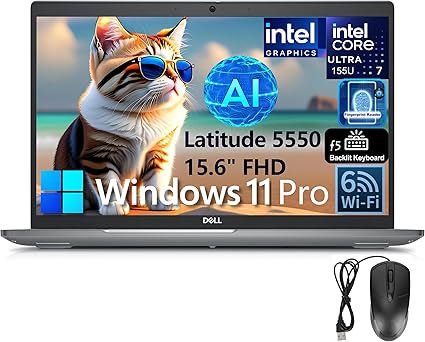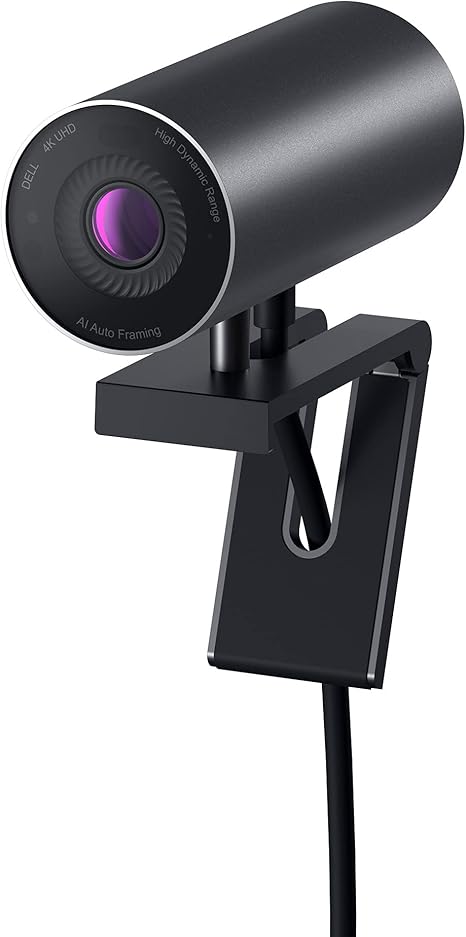What Are the Key Differences Between Dell Precision and Latitude Laptops?
Dell offers a variety of laptops to cater to the needs of different users, and two of their most popular lines are the Dell Precision and Dell Latitude series. Each of these laptop series serves a unique purpose, targeting different types of users. Understanding the key differences between Dell Precision and Latitude laptops is essential for making the right choice for your professional or personal needs.

What Are Dell Precision Laptops?
Dell Precision laptops are a line of high-performance mobile workstations designed for professionals who require robust computing power for demanding applications. These laptops are typically used in fields such as engineering, architecture, graphic design, and video production, where processing power and graphics capabilities are critical.
Key Features of Dell Precision Laptops
- Performance: Dell Precision laptops are built to handle the most demanding tasks. They come with powerful processors, often from Intel’s Core i7 or i9 series, or even Intel Xeon processors, which are designed for high-end workstations. The RAM in these machines can be customized from 16GB to as much as 128GB or more, ensuring that they can handle large datasets and complex computations without slowing down.
- Graphics: Precision laptops stand out due to their professional-grade graphics cards. These machines often come equipped with NVIDIA Quadro or AMD Radeon Pro GPUs, which are optimized for tasks like 3D rendering, CAD applications, and video editing. These GPUs offer better performance in professional applications compared to the consumer-grade GPUs found in many other laptops.
- Display Options: Dell Precision laptops often feature high-resolution displays, including 4K UHD options with wide color gamut coverage, making them ideal for professionals in fields like photography and video editing. Some models also offer touchscreens and HDR capabilities, providing a more interactive and vibrant visual experience.
- Thermal Management: Given their powerful components, Dell Precision laptops come with advanced thermal management systems. These systems use multiple fans and heat pipes to keep the CPU and GPU cool during intensive workloads, ensuring consistent performance over long periods.
- Certification and Reliability: Many Precision laptops are ISV (Independent Software Vendor) certified, meaning they are tested and optimized to run specific professional software smoothly. This certification is crucial for users who rely on applications like AutoCAD, Adobe Creative Cloud, or SolidWorks, as it ensures compatibility and performance.
What Are Dell Latitude Laptops?
Dell Latitude laptops are engineered with business professionals in mind, focusing on security, portability, and manageability. These laptops are a staple in the corporate world, providing a reliable and secure platform for business operations.
Key Features of Dell Latitude Laptops
- Portability: Dell Latitude laptops are designed for the business professional on the move. They are lightweight and slim, making them easy to carry in a briefcase or backpack. With screen sizes ranging from 12 inches to 15 inches, these laptops are built to be as portable as possible without sacrificing functionality.
- Battery Life: Latitude laptops are known for their exceptional battery life, which can last a full workday or more on a single charge. This long battery life is particularly beneficial for business travelers who need to work during long flights or meetings without access to a power outlet.
- Security Features: Security is a top priority for the Latitude series. These laptops come with a range of features to protect sensitive business data, including hardware-based encryption, biometric authentication (such as fingerprint readers), smart card readers, and optional infrared cameras for facial recognition. Dell’s Trusted Platform Module (TPM) and Endpoint Security Suite further enhance security by providing advanced encryption and malware protection.
- Durability and Design: Dell Latitude laptops are built to withstand the rigors of business travel. They undergo extensive testing to ensure they can endure drops, extreme temperatures, and vibration. The design often includes reinforced hinges and spill-resistant keyboards, making them a reliable choice for professionals who need a durable device.
- Manageability: Dell Latitude laptops are designed with IT departments in mind. They come with Dell’s Client Command Suite, which allows for efficient deployment, updating, and management of large fleets of laptops. This suite simplifies tasks like BIOS updates, hardware diagnostics, and system reimaging, saving time for IT professionals.
Differences in Target Audience
The Dell Precision and Latitude series cater to different audiences, which is one of the primary distinctions between the two.
- Precision Laptops: These laptops are targeted at professionals who need a high-performance machine for demanding applications. They are ideal for engineers, architects, graphic designers, video editors, and others who require significant processing power and advanced graphics capabilities.
- Latitude Laptops: Latitude laptops, on the other hand, are designed for business professionals who need a reliable, secure, and portable laptop for everyday business tasks. These tasks include document editing, presentations, emails, and web conferencing, which do not require the same level of processing power as professional applications.
Differences in Performance
Performance is a critical factor that differentiates the Dell Precision and Latitude series.
- Precision Performance: Dell Precision laptops are equipped with high-end processors, ample RAM, and dedicated GPUs, making them capable of handling resource-intensive tasks such as 3D rendering, video editing, and scientific simulations. The ability to configure these laptops with powerful Intel Xeon processors and large amounts of ECC (Error-Correcting Code) RAM ensures that they can perform reliably under heavy workloads.
- Latitude Performance: While Dell Latitude laptops also offer good performance, they are not designed for resource-intensive applications. They typically come with Intel Core i5 or i7 processors and integrated graphics, which are more than sufficient for everyday business tasks but may struggle with high-end creative or scientific software.
Differences in Graphics Capabilities
Graphics capabilities are a significant area of difference between the two laptop series.
- Precision Graphics: Dell Precision laptops are equipped with professional-grade graphics cards, such as the NVIDIA Quadro or AMD Radeon Pro series. These GPUs are designed for professional use and offer features like enhanced OpenGL support, optimized drivers for CAD applications, and large memory capacities, making them suitable for tasks like 3D modeling, animation, and video production.
- Latitude Graphics: Dell Latitude laptops typically feature integrated graphics, such as Intel UHD or Iris Xe Graphics. While these are adequate for tasks like video streaming, presentations, and basic graphic design, they are not designed for professional-grade applications. Users requiring more graphics power for occasional heavy lifting might find some Latitude models offering discrete GPUs, but these will still not match the performance of a Precision workstation.
Differences in Build Quality
Build quality is another area where Dell Precision and Latitude laptops show noticeable differences.
- Precision Build Quality: Dell Precision laptops are built to withstand the demands of professional use. They are often constructed with premium materials like magnesium alloy and carbon fiber, which provide durability without adding excessive weight. These laptops are rigorously tested to meet MIL-STD-810G standards for durability, ensuring they can withstand harsh environments and heavy use.
- Latitude Build Quality: Latitude laptops are also well-built, with a focus on durability and portability. However, their construction prioritizes lightweight design, making them more portable but potentially less rugged than the Precision series. That said, Latitude laptops are still built to last, with features like spill-resistant keyboards and durable hinges that make them suitable for frequent travel.
Differences in Expandability
Expandability options are crucial for users who need to upgrade their laptops over time.
- Precision Expandability: Dell Precision laptops are designed with expandability in mind. They often feature multiple M.2 slots for SSDs, allowing users to add additional storage as needed. They also offer the ability to upgrade RAM, with some models supporting up to 128GB or more. This expandability is essential for professionals who need to keep up with growing storage and memory demands.
- Latitude Expandability: Dell Latitude laptops are generally less expandable, as they are designed to be more portable and lightweight. While some models do offer options to upgrade RAM or storage, the extent of these upgrades is usually more limited compared to the Precision series. This makes Latitude laptops more suitable for users who prioritize portability over the ability to upgrade their machine.
Differences in Security Features
Security is a critical concern for both Dell Precision and Latitude laptops, but there are differences in how these features are implemented.
- Precision Security Features: Dell Precision laptops offer robust security features, including options for hardware-based encryption, biometric authentication, and Dell’s Endpoint Security Suite. However, the focus of these laptops is more on performance, so while they offer strong security, it is often secondary to their processing and graphics capabilities.
- Latitude Security Features: Dell Latitude laptops place a stronger emphasis on security, making them ideal for business users who handle sensitive information. In addition to biometric authentication and hardware encryption, these laptops often come with advanced features like Dell SafeID, which secures user credentials, and Dell SafeScreen, which prevents onlookers from viewing the screen content. The Latitude series is designed to meet the stringent security requirements of corporate IT departments.
Differences in Portability
Portability is a key differentiator between the Dell Precision and Latitude series.
- Precision Portability: While Dell Precision laptops are portable, they are generally larger and heavier than Latitude laptops due to their high-performance components. This makes them less ideal for users who need to carry their laptop frequently, although they are still a good option for those who need to balance performance with mobility.
- Latitude Portability: Dell Latitude laptops are designed with portability in mind. They are lighter and more compact, making them easy to carry around during business trips or daily commutes. Their long battery life also adds to their portability, allowing users to work for extended periods without needing to recharge.
Differences in Battery Life
Battery life is a key consideration for professionals who need to work on the go, and Dell Latitude laptops excel in this area. These laptops are designed to last an entire workday on a single charge, making them perfect for business travelers. In contrast, Dell Precision laptops are designed for performance, which often comes at the expense of battery life. While they still offer decent battery life, they may not last as long as Dell Latitude laptops on a single charge.
Differences in Price
Price is another important consideration when choosing between Dell Precision and Latitude laptops. Dell Precision laptops are typically more expensive than Dell Latitude laptops, as they are designed for professionals who need a high-performance machine for demanding tasks. The cost of Dell Precision laptops is often justified by their powerful processors, advanced graphics capabilities, and expandability. In contrast, Dell Latitude laptops are designed for business users who need a reliable, secure, and portable machine for everyday tasks. They are typically more affordable, making them a popular choice for corporate users and small businesses.
Conclusion
In conclusion, Dell Precision and Latitude laptops cater to different audiences and have distinct features that set them apart. Dell Precision laptops are designed for professionals who need a high-performance machine for demanding tasks, while Dell Latitude laptops are designed for business users who need a reliable, secure, and portable machine for everyday tasks. The key differences between Dell Precision and Latitude laptops include their target audience, performance, graphics capabilities, build quality, expandability, security features, portability, battery life, and price. By understanding these differences, you can make an informed decision when choosing a laptop that suits your needs.

